Keywords: Indigenous Leadership
There are more than 200 results, only the first 200 are displayed here.
-
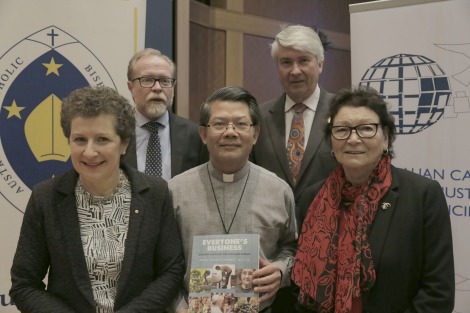
RELIGION
- Frank Brennan
- 11 September 2017
2 Comments
The real call of Everyone's Business is to move beyond them and us to admitting that there is only us. If we are truly to build an inclusive and sustainable economy, it can't be just those in full time paid employment who are part of that economy. We take seriously the principles of neo-liberalism, letting the market decide. But we set limits on the market for the common good.
READ MORE
-
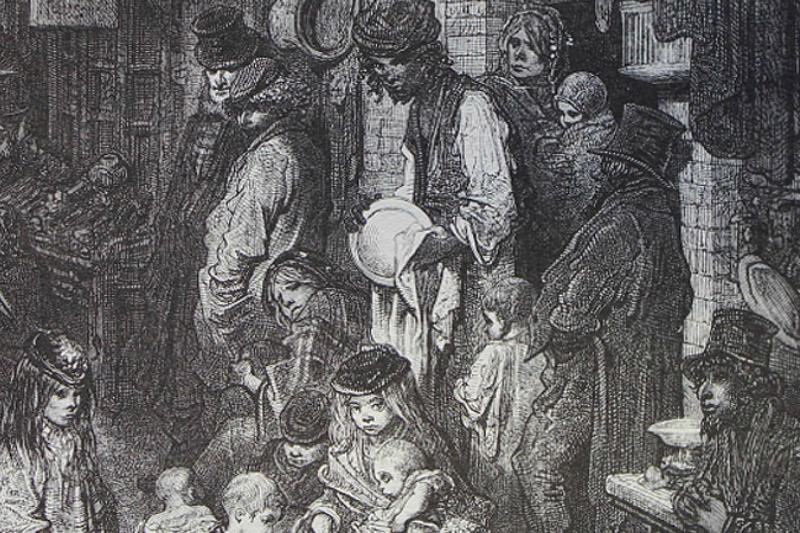
AUSTRALIA
- Andrew Hamilton
- 05 July 2017
17 Comments
A regular feature in Australian politics is the attempt to save money by penalising people who are struggling with life. It is usually accompanied by disparagement of the groups who are targeted. The strategy has a long history that provides a context. In 19th century England, a system was established that would encourage people to seek work by deterring them from seeking help. Central to this was the establishment of workhouses where the conditions would be more unpleasant than in any form of work.
READ MORE 
-
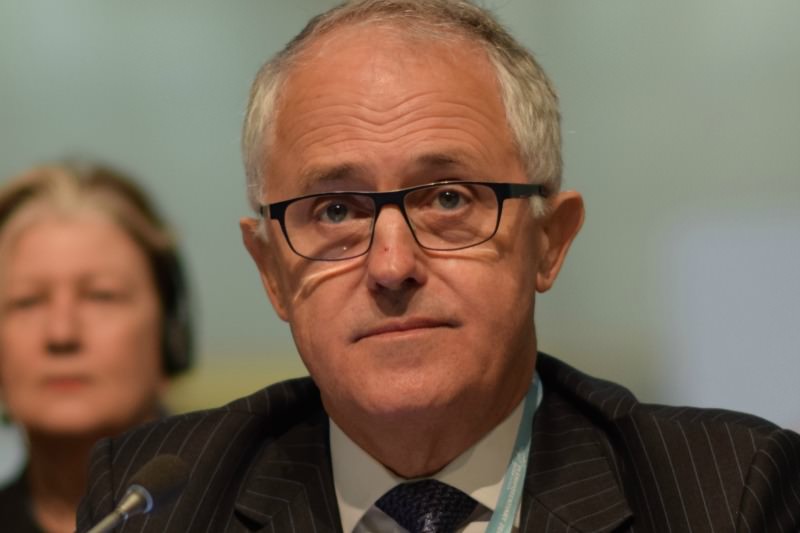
AUSTRALIA
- Fatima Measham
- 21 June 2017
15 Comments
In the latest Essential poll, the primary vote for Pauline Hanson's One Nation lifted to 11 per cent. It does not bode well when competence is no longer the baseline; though in a leadership vacuum, 'someone else' holds a natural appeal. In any case, there can be worse things than incompetence. There is timidity. Mediocrity. Running up the cost of doing nothing at all. In so many ways, the Australian political class is holding us back. That is the crux of nearly every policy impasse over the past several years.
READ MORE 
-

AUSTRALIA
- Frank Brennan
- 31 May 2017
6 Comments
Indigenous leaders this last week have called for the creation of two new legal entities. They want a First Nations Voice enshrined in the Constitution, and a Makarrata Commission set up by legislation. The Makarrata Commission would supervise agreement making between governments and First Nations and engage in truth telling about history. The envisaged destination is a national Makarrata (or treaty). So the immediate constitutional issue is the creation of the First Nations Voice. There is no point in proceeding with a referendum on a question which fails to win the approval of Indigenous Australia. Neither is there any point in proceeding with a referendum which is unlikely to win the approval of the voting public.
READ MORE
-
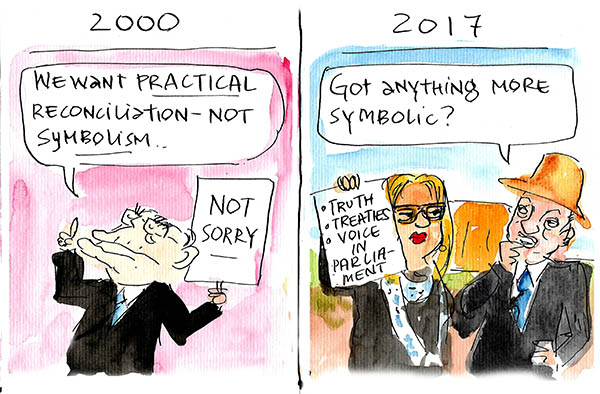
AUSTRALIA
- Kate Galloway
- 30 May 2017
10 Comments
Political response has been ambivalent at best, and ambivalence sounds a death knell for mainstream engagement by a tentative public. Turnbull pointed out that any claim must be acceptable to the general public to succeed. In the next breath he discussed the success of the 1967 Referendum. This was disingenuous given the political reality of 67, where there was no case presented for a no vote. After the Uluru Statement, it is now not possible to ignore substantive constitutional reform, or treaty.
READ MORE 
-

RELIGION
- Frank Brennan
- 17 May 2017
As the Church of 2030, we need to be more attentive to the contemplation of believers and our experience of spiritual realities, as well as the preaching of the church. Pope Francis has no time whatever for the notion of the Church as a perfect society. But, there is no way that Francis wants to abandon the ideals and the commitment to truth and justice so well exemplified by his predecessors John Paul II and Benedict.
READ MORE
-
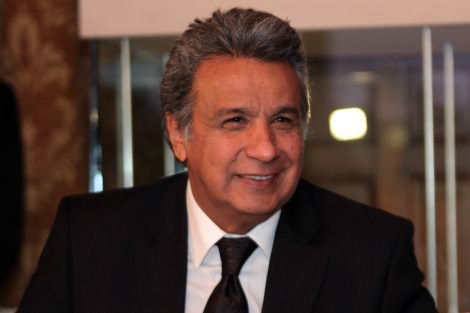
INTERNATIONAL
- Antonio Castillo
- 02 March 2017
5 Comments
Ecuadoreans will head back to the polls on 2 April after this month's presidential election didn't come up with an outright winner. Against all projections Socialist Lenin Moreno, who served as Rafael Correa's vice president from 2007 to 2013, did very well. While he fell short of winning, there is a sense that the Ecuadorean 21st century socialism, an economic and political model instigated by Correa, is still popular; and in this Andean country of 15 million the majority are poor.
READ MORE 
-

RELIGION
- Frank Brennan
- 17 February 2017
3 Comments
The commission's forensic scrutiny of past actions of church officials in no way constitutes an interference with the freedom of religion. Its spotlight is to be welcomed, provided only that it is shone on a truly representative sample of all institutions which have been found wanting and provided the same light filter is applied to all institutions. I do however have a problem with the commission making findings on issues like the want of compassion when those findings are made only against a Church.
READ MORE
-

AUSTRALIA
- Ann Deslandes
- 20 January 2017
12 Comments
Like all authorised generalisations, this luminous, unified vision of Australia contains truth, exaggerations, and lies. As well as being a globally known story, it's also the story Australia most likes to tell itself; it sings through ideas like the lucky country, the land of the fair go, the land of the long weekend. Social research on Australia tells a more complex story. Australia is in fact an ethnocracy - a state that is formed in the image and for the benefit of a dominant ethnic group.
READ MORE 
-

ENVIRONMENT
- Frank Brennan
- 28 November 2016
'No matter what the economic, political and legal problems confronted by modern day India, our response can be improved by an application of the key principles and norms developed in the international law of trade and human rights, helping to enunciate the realm of law, regulation and political accountability, enhancing public scrutiny providing the right environment for doing business.' Frank Brennan presents the 25th JRD Tata Oration, Xavier School of Management, Jamshedpur, India, 26 November 2016.
READ MORE
-
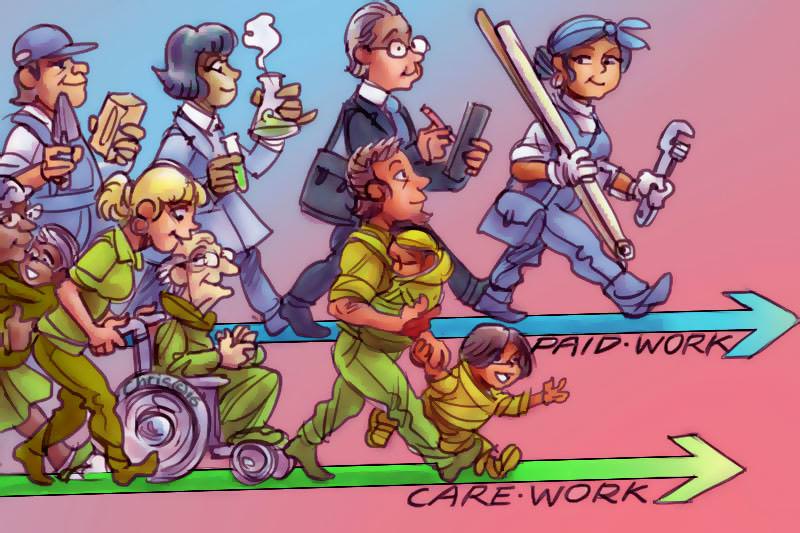
AUSTRALIA
- Kate Galloway
- 25 November 2016
2 Comments
Civil society requires care work. All of us, at various stages of our lives, will be dependent on others for our daily needs. Most of us will likewise care for others at some point. The challenge is how to allocate caring responsibilities throughout society, while allowing also for the paid work that secures economic independence. At the moment the tacit expectation that women will do unpaid care work - and that men (theoretically) are unburdened by care work - contributes to economic inequality.
READ MORE
-

AUSTRALIA
- Frank Brennan
- 13 October 2016
2 Comments
With idealism and pragmatism, I invite you criminal lawyers in the next 30 years to imagine and enact a better criminal justice system which alleviates rather than exacerbates the devastating effects of colonisation and marginalisation on Indigenous Peoples, and most particularly their children. An intelligently designed criminal justice system must help secure the foothold of Indigenous children in both the Market and the Dreaming.
READ MORE